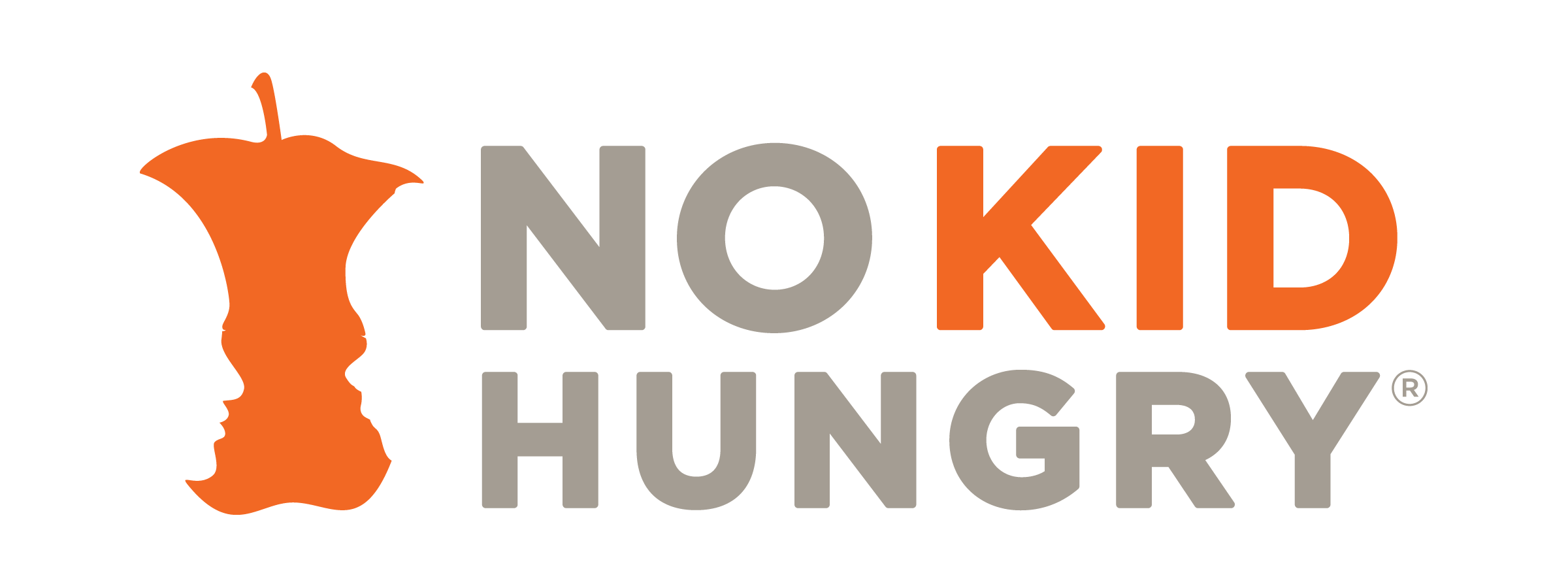On October 16, No Kid Hungry New York submitted written testimony to the New York City Council Education and Health Committees on the reopening of NYC schools. In this testimony, Director Rachel Sabella shared the impact that COVID-19 has had on hunger and poverty in New York City and how programs like free school meals help keep kids healthy and fed. Read below to see our full testimony.
INTRODUCTION
Good morning Chair Treyger, Chair Levine and members of the Education and Health Committees of the New York City Council. My name is Rachel Sabella and I am the Director of No Kid Hungry New York. Thank you for the opportunity to testify at today’s hearing on oversight of the reopening of New York City schools.
First, we thank the City Council for your steadfast commitment to protect New Yorkers from food insecurity, especially in light of the COVID-19 crisis. The City Council has long been a leader in this arena—from supporting Breakfast in the Classroom to the expansion of universal school meals to leading the charge for increased, baselined funding for food pantries and soup kitchens to creating food and hygiene pantries in New York City public schools and now being key partners in the “Feeding New York” plan—more than ever, we are grateful to count you as our partner in this work.
No Kid Hungry New York is a campaign of Share Our Strength, a national anti-hunger organization dedicated to ending hunger and poverty. Using proven, practical strategies, our No Kid Hungry campaign builds public-private partnerships with the goal of ensuring children have access to the healthy food they need, every day. In response to the COVID-19 pandemic, No Kid Hungry has provided emergency grants across all 50 states, the District of Columbia and Puerto Rico to help school districts, food banks and other community organizations feed kids during this crisis. In addition to our grant-making, we have advocated for policies to address the unique barriers and unprecedented level of need brought on by this crisis—including national child nutrition waivers that offer flexibility to meal providers, expanded Supplemental Nutrition Assistance Program (SNAP) and a new program call Pandemic Electronic Benefits Transfer (P-EBT)—while offering strategic assistance to hundreds of local organizations. Since 2011, our No Kid Hungry New York campaign has helped connect millions of children across the state with school breakfast and summer meals.
IMPACT OF COVID-19 ON HUNGER AND POVERTY IN NEW YORK CITY
The COVID-19 pandemic has affected all parts of our lives as New Yorkers. More than 1.5 million New Yorkers are unemployed as of July of this year, leading to one of the worst unemployment crises in the state’s history.[1] For many of our city’s children and families, the pandemic and its economic consequences has had a disastrous impact on food security. Prior to the pandemic, 1 in 6 children in New York State were food insecure, and now 1 in 4 children could face food insecurity this year.[2] Recent data from the NYS Office of Temporary and Disability Assistance (OTDA) shows that 1.9 million households or 1.66 million individuals participated in SNAP in New York City in June 2020, which is nearly 125,000 more participants than June 2019[3]. We fear a decade of progress in the fight against child food insecurity may have been eliminated in a few short months.
Here’s what food insecurity looks like: In some families, the pantry is completely empty. In others, mom or dad skips dinner a few nights a week so the kids can have something to eat in the evening. Many families are making impossible decisions between paying their ConEd bill or buying groceries. All of these scenarios have a profound effect on kids and families.
When kids don’t get the consistent nutrition they need each day and throughout the year, it’s harder for them to grow up healthy, happy, and strong. Consistent access to nutrition is linked to cognitive and physical development, test scores and long-term health and education outcomes. With the economic impacts of COVID-19 reverberating across the city, an entire generation is at stake.
HOW NEW YORK ADDRESSED CHILDHOOD HUNGER DURING COVID-19
The COVID-19 pandemic has impacted the food security of kids and families in every neighborhood across the city. As part of our pandemic response, No Kid Hungry New York has distributed over $1.5 million dollars to 45 community-based organizations and school districts across the state and Puerto Rico, with many grants directed to community organizations in New York City in addition to support for P-EBT and Grab and Go Meals awareness campaigns for various New York City agencies. These grants, distributed from March through June, have reached food insecure children and families in neighborhoods across all five boroughs. Grants provided funding for equipment purchases, packaging, staffing, transportation, promotion and food items to keep kids and families from experiencing food insecurity.
Starting March 16, 2020—the day school buildings officially closed in New York City—the New York City Department of Education (DOE) Office of Food and Nutrition Services (OFNS) shifted its normal food service model to provide grab-and-go-meals to students across the city. Since then, OFNS leadership and staff have worked tirelessly to adapt, improve and increase their meal service. From March 16 to when school buildings reopened this September, there were more than 500 meal sites in neighborhoods throughout the five boroughs serving upwards of 500,000 meals a day. These meal sites didn’t just serve students, but also parents and individuals in need of a nutritious meal. The sites also served culturally appropriate foods, including halal and kosher meals, to ensure that no New Yorker went hungry.
School Meals are A Lifeline for NYC Families. During this crisis, school meals have been an absolute lifeline for New York City families; both to those who have depended on school meals in the past and to others who are now finding themselves facing unprecedented economic challenges. With high unemployment and food insecurity rising rapidly, increased need for school meals is certain to continue. As New York City schools reopen, we urge you to continue prioritizing school nutrition programs and school meal service in these uncertain times. It is absolutely imperative that school meals remain a service that New York City students and families can count on – whether they are attending school in-person or participating in virtually. We commend the entire team at OFNS and especially the Local 372, DC 37 members who had been on the front lines since Day 1 of the pandemic ensuring kids had regular access to food.
Maintaining Access to School Meals While Protecting Kids. The team at OFNS continues to rethink food service models to best serve families in New York City and protect their workforce. The Centers for Disease Control and Prevention (CDC) recommends serving school breakfast and lunch in classrooms, rather than in the cafeteria, to reduce the risk of infection for schools experiencing minimal to moderate transmission levels. Though DOE continued rolling out Breakfast in the Classroom (BIC) prior to the crisis, which helped to equip New York City schools for success when serving breakfast and lunch in the classroom this fall, it was not in every New York City school building. In order to implement this model, there will continue to be additional start-up costs and efforts associated with following the CDC best practice of moving school meals into the classroom. Keeping school meals accessible and safe is vital to children and families. While we recognize New York City is facing unprecedented financial challenges, eliminating hunger has also been listed as a top priority of the Administration and the City Council, and we must ensure DOE has every resource at their disposal to continue to feed children.
We also want to recognize the members of the DOE OFNS staff who are serving school meals on the front lines of the pandemic. The entire New York City school system relies on the incredible members of Local 372, DC 37 to provide nutritious meals to children during the school year. As New Yorkers continue to lean on this dedicated group of people as school buildings reopen during a public health emergency, we must ensure that OFNS can procure Personal Projective Equipment (PPE), masks, cleaning supplies and regular and expedited COVID-19 testing they need to keep their staff members safe and to continue their essential work of feeding vulnerable children.
Informing Eligible Families about Resources Available to Help Them Make Ends Meet. With record unemployment numbers in New York City and across the country, safety net programs are more important than ever. Many families are struggling to put food on the table while balancing rent, health care costs, and other unavoidable expenses. Thankfully, federal programs like the SNAP, Special Supplemental Nutrition Program for Women, Infants, and Children (WIC) and a new benefit called P-EBT exist to help families get back on their feet during hard times. However, these programs only work when people can access them.
With many New Yorkers qualifying for benefits for the first time and fear still associated with participation in some programs due to immigration status, there is a clear need for DOE to perform outreach efforts to inform communities about these programs and help eligible families enroll in them. The programs are important tools to help families in New York City weather this crisis, and investing in outreach will help families keep their children healthy and fed. To ensure that eligible New York City families are able to participate in these federal nutrition programs, it is imperative that DOE maintain communication on a regular basis with other New York City agencies to ensure coordination through interagency campaigns.
Despite these challenging circumstances, DOE and other city agencies are taking the necessary steps to feed children and families across the city during this devastating and ever-changing time. New York led the country in supporting access to nutritious meals when schools closed and we can now lead the country in ensuring that all students have access to safe and nutritious meals as schools reopen this fall.
On October 9, the U.S. Department of Agriculture announced the extension of critical child nutrition program waivers that will provide schools and community organizations with more flexibilities to feed children during the entire 2020-21 school year. We urge the DOE to work closely with the New York State Education Department to take advantage of all child nutrition waivers available.
CONCLUSION
New York City is facing a time of unprecedented challenges and devastating loss. Despite the vast challenges that the pandemic has brought, we have seen New York City residents come together in solidarity with one another. In order to rebuild stronger and help struggling New Yorkers, it is essential that we all continue to work together to help the City rise again. As you address the many obstacles ahead of us, I urge the New York City Council to continue to prioritize programs that ensure no New Yorker faces hunger. No Kid Hungry New York stands at the ready to work with the Council, the de Blasio Administration and our fellow New Yorkers to ensure all children and families have access to the food they need to thrive.
[1]https://labor.ny.gov/stats/pressreleases/pruistat.shtm#:~:text=New%20York%20City’s%20unemployment%20rate,to%201%2C527%2C800%20in%20July%202020
[2] Gundersen, C., M. Hake, A. Dewey, E. Engelhard (2020). The Impact of the Coronavirus on Food Insecurity v1 [Data file and FAQ]. Available from Feeding America: research@feedingamerica.org.
[3] https://otda.ny.gov/resources/caseload/2019/2019-06-stats.pdf

